The next Einstein could come from Africa – and he could be a she. “I want to be a professor at a top research university,” says Tshenolo Thato Daumas, 30, of South Africa. “I really want to do research, no matter what,” says Wafaa Mohammed, 24, who is from Sudan. When both students speak of research, they are radiant, as if they had just fallen in love. They are two of five fellows who are currently spending half-a-year working on the use of machine learning in science at the University of Tübingen. Others in the group are Bolaji Bamiro of Nigeria, Tatenda Emma Matika of Zimbabwe, and Faisal Mohamed of Sudan. Tshenolo Thato Daumas and Wafaa Mohammed arrived in Germany in early February. At that time, there were strict entry requirements due to the pandemic. The weather was stormy, and mornings and evenings were frosty, but that did not bother them. “I even liked this weather,” says Daumas looking back. To this day, she and Mohammed are euphoric about everything new they have been experiencing in Tübingen.
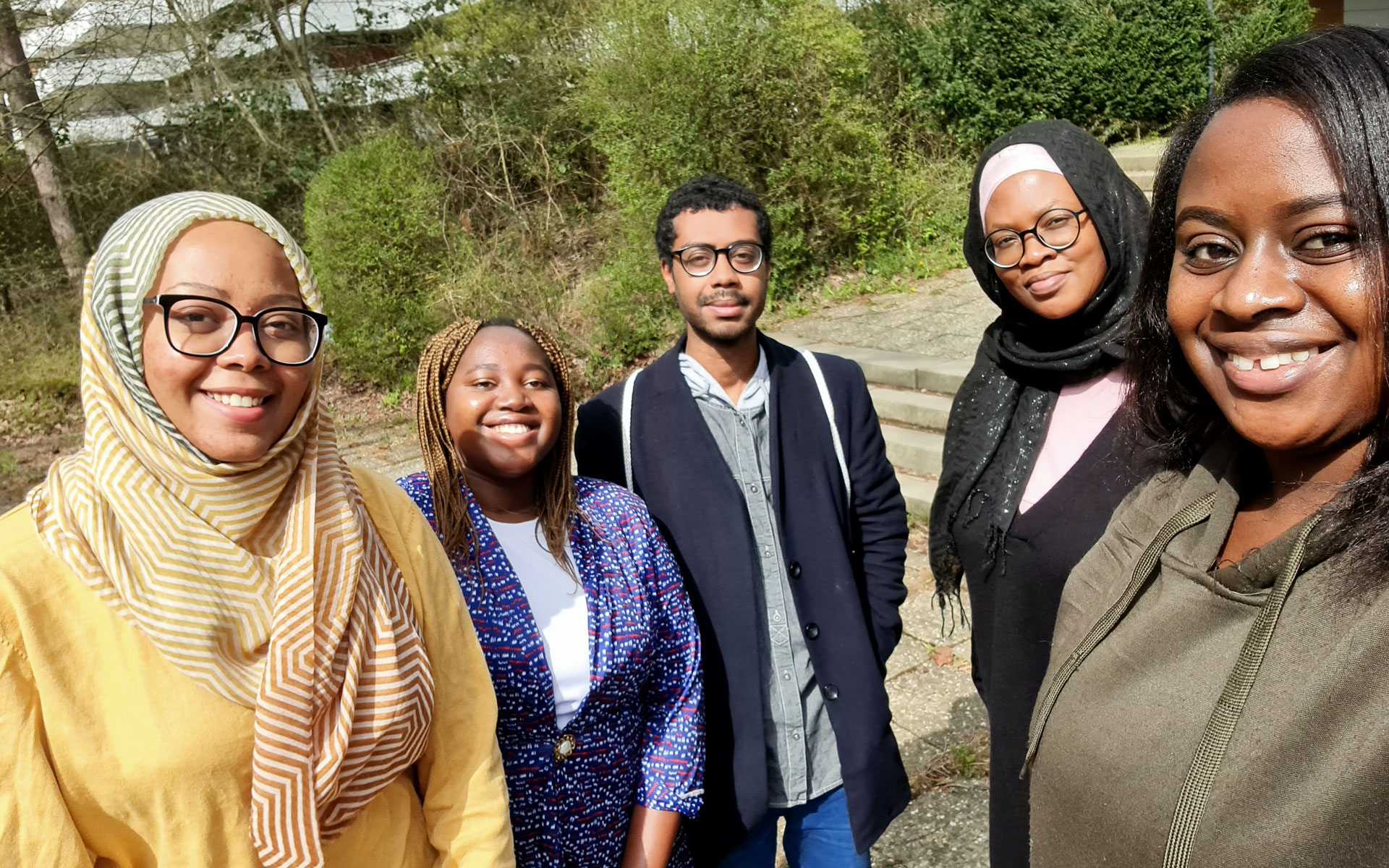
Undertaking research for half a year at the Cluster of Excellence “Machine Learning” in Tübingen: Wafaa Mohammed, Bolaji Bamiro, Faisal Mohamed, Tshenolo Thato Daumas and Tatenda Emma Matika (left to right). © TATENDA MATIKA/UNIVERSITY OF TÜBINGEN
Finding and developing talent
“We need to design programs to pick talented students up when they are young and excited,” says 44-year-old Charles Lebon Mberi Kimpolo, as he leans over his desk in Kigali, Rwanda. He is wearing a t-shirt depicting a map of Africa – alongside with the words “Next Einstein Forum”, which is part of the African Institute for Mathematical Sciences (AIMS). The initiative’s objective is to bridge the research gap between Africa and the other continents. AIMS is a network of five centers of excellence where the mathematics elite of Africa receive training. Mberi Kimpolo says, “Talent is everywhere, but there are no opportunities.” Competition for jobs in Africa is fierce. The Coronavirus pandemic has worsened the economic situation and many young people are unemployed, despite a university degree.
Opportunities for further education are lacking, even though well-trained researchers and scientists are urgently needed. For example, climate change is a serious threat to Africa, and the health care system will also be challenged by new diseases in the future. “We need qualified researchers, who want to make a difference in their home country,” says Mberi Kimpolo. That is why he is looking for opportunities to support students to ensure that they advance in life and retain their passion for research. One such opportunity is the recently established cooperation with the Cluster of Excellence “Machine Learning: New Perspectives for Science” at the University of Tübingen, led by Philipp Berens together with Ulrike von Luxburg.
African students’ perspective is in demand
“We want to integrate the perspective of African students in our research,” says Berens. So he came up with a concept for a fellowship program to connect AIMS and the Tübingen Cluster of Excellence. In April last year, Berens shared the idea during an online network meeting with researchers from African countries, including Mberi Kimpolo. When Berens told Mberi Kimpolo about the exchange program, he was immediately excited. Only a few months later, fifteen people had already been nominated for the fellowship. And Mberi Kimpolo says that many are already interested in being part of the next cohort.
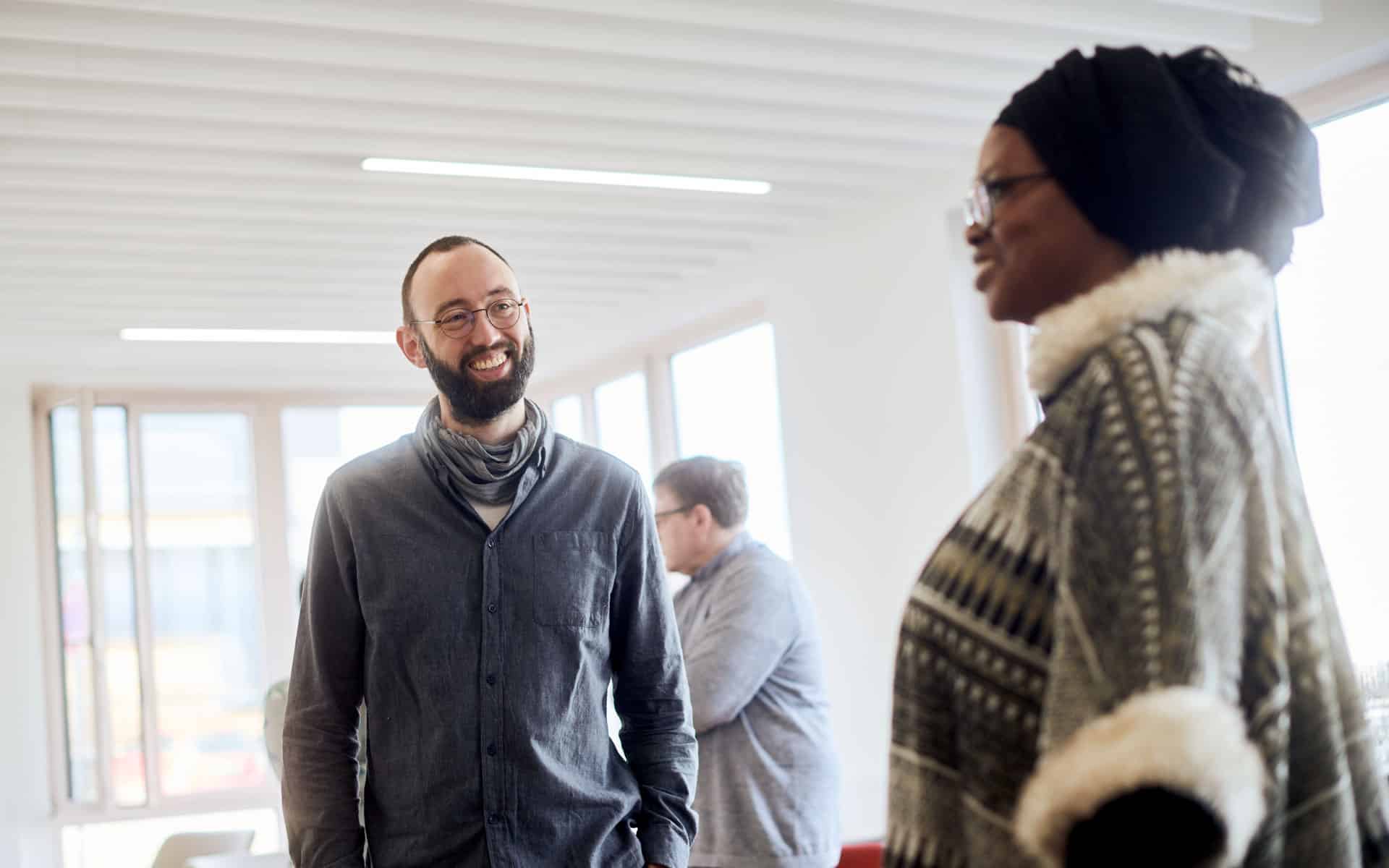
Philipp Berens, speaker of the Cluster, had the idea for the fellowship program. © ELIA SCHMID/UNIVERSITY OF TÜBINGEN
The fellowship program will be offered annually at least until 2025 – the end of the current funding period of the Cluster of Excellence “Machine Learning” through the German Research Foundation (DFG). The goal of the Cluster is to apply machine learning to enable and accelerate scientific discoveries. Mberi Kimpolo says, “Our partnership is really a win-win-relationship.” He’s talking about sharing the expertise of Africa’s best mathematics talents in exchange for the opportunity to work at an internationally known research cluster.
Mathematical know-how with strength in application
Mathematics has been a recurrent theme in Tshenolo Thato Daumas’ life. Already as a child, she loved numbers. Math cheered her up when she was feeling sad or lonely. It was her favorite subject and homework. She could use math to solve problems, there was no room for interpretations. She remembers well how teachers testing her in high school gave her a problem that involved using a method the pupils had yet to learn. She covered pages upon pages until she found the solution. Her teacher was very impressed.
From that moment on, Daumas knew that math was not just a skill – for real mathematics you need talent. And she had talent. After a Bachelor’s degree in Applied Mathematics, she went on to do her Master’s degree in Mathematics at the AIMS dependance in Cape Town. And she has just completed an additional Master’s degree in Applied Mathematics and graduated from Stellenbosch University with a thesis in Computational Immunology, while part of the Data Science Research Group at AIMS in Cape Town. “I know if I persevere, I will make it,” she says, when she speaks of her goal to become a professor. Berens says, “The fellowship gives the students greater opportunities to get an international doctorate.”
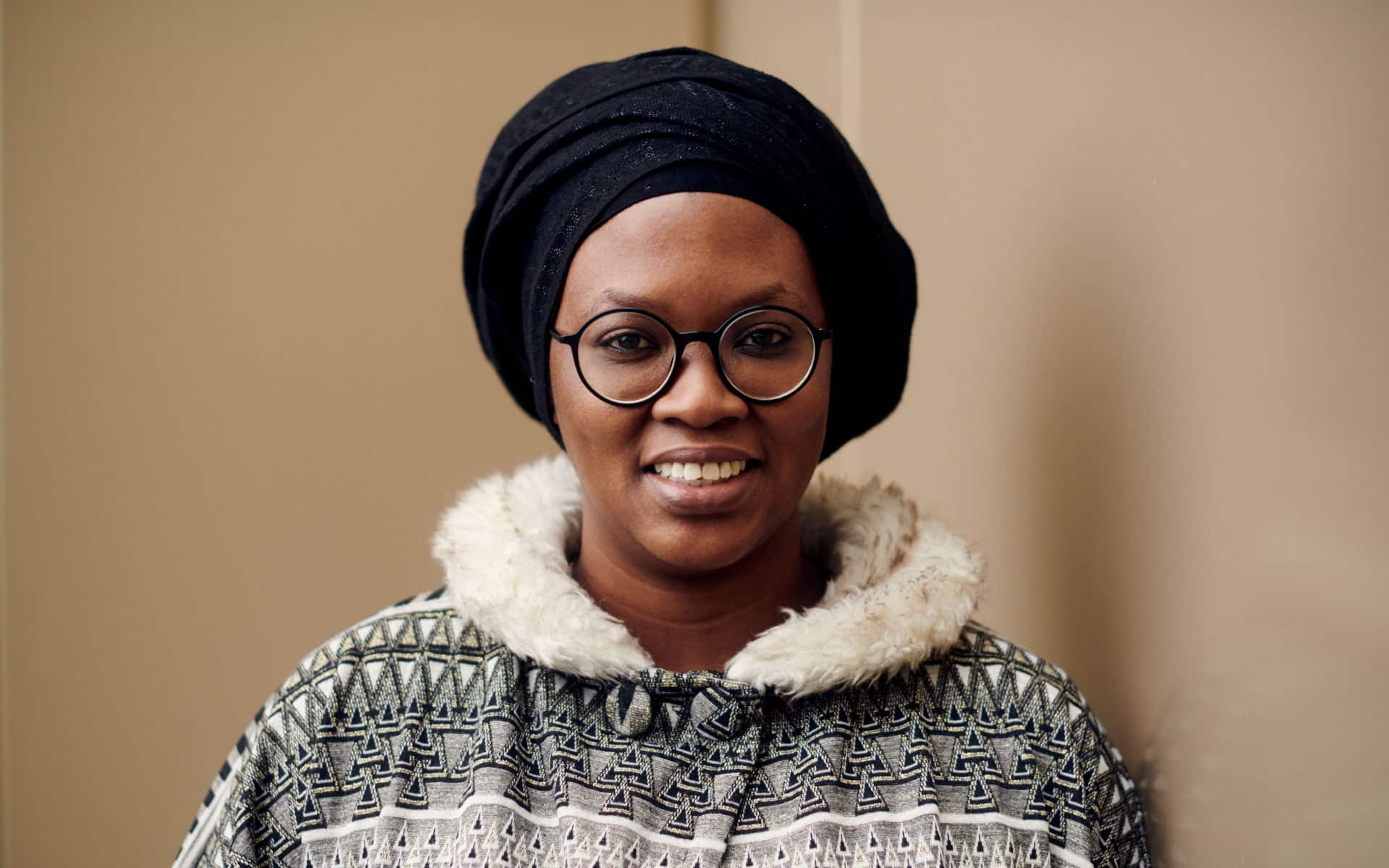
Tshenolo Thato Daumas knows exactly where she wants to go in life. She wants to become a professor. © ELIA SCHMID/UNIVERSITY OF TÜBINGEN
In Tübingen, Daumas is now working on machine learning approaches to robustly visualize multi-dimensional molecular single-cell data. This would allow medical and life science researchers to make hypotheses more easily and reliably. For example, they could recognize more rapidly if cells were becoming pathological and starting to turn against the organism as for instance in cancer. Her advisor, Manfred Claassen from the Medical School of the University of Tübingen, says, “We’re desperately seeking colleagues who have a background in theoretical mathematics, but who are also strong in the application field.” He has found just that kind of candidate in Daumas.
Advancing research at home
Wafaa Mohammed was also the best in her class. She studied engineering at the University of Khartoum in Sudan. After that, she went on to get a Master’s in Machine Learning in Senegal. “It opened my eyes,” she says, “I am still fascinated by the idea of using machine learning for so many problems.” Mohammed says that many people in her homeland have their doubts about the new technology. They are worried about privacy, for example. But Mohammed sees the potential above all. She says that AI could, for instance, be used to improve healthcare in Africa. If medical tasks could be partially automated, then that would free-up the few doctors available. And the more researchers work in this area in Africa, the more data on the African population they could process with the help of machine learning.
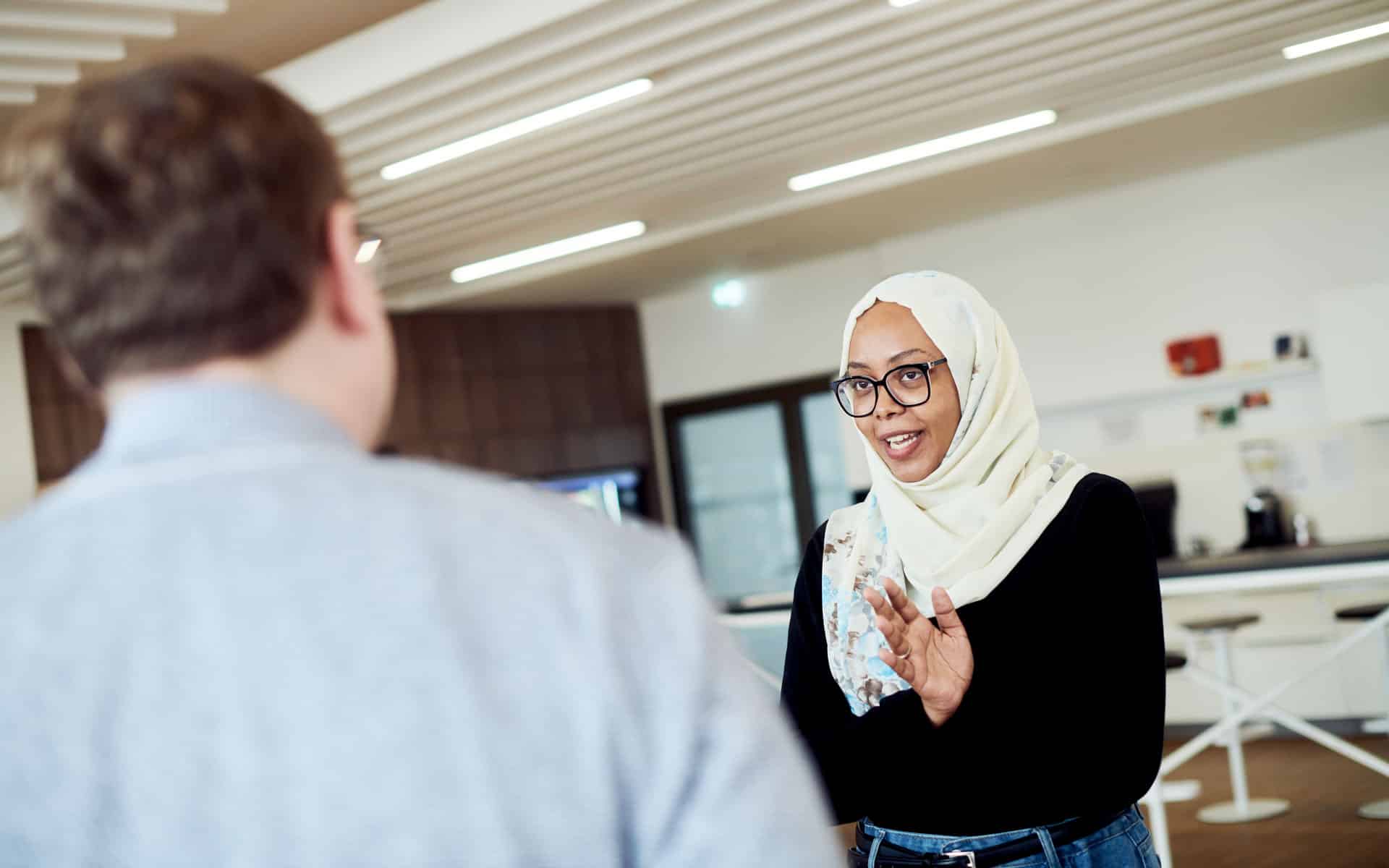
Wafaa Mohammed, here talking to her supervisor Hendrik Lensch, works on real-time translations with machine learning . © ELIA SCHMID/UNIVERSITY OF TÜBINGEN
The problem, says Wafaa Mohammed, is that many African children never even get the idea that they could become researchers. That is why she has committed herself to a group that brings girls closer to science. She loves working with people just as much as she loves research. At the University of Tübingen she is working on real-time translation and is investigating whether artificial intelligence is better able to translate words when they are linked to images and how well that works in combination with several languages. At the beginning, it was English and German. Later on, perhaps, she will move on to Arabic, her first language. She wants machine learning to become multilingual.
One of her advisors at the Cluster of Excellence “Machine Learning: New Perspectives for Science”, Professor Hendrik Lensch, is enthusiastic. “Wafaa is a very good student. She’s prepared, independent, and can hold her own in a discussion.” Mohammed began her project at the end of February. Since then, she has been able to make the first acquaintances with her colleagues at the Cluster of Excellence. She looks forward to the talks with them, the research, and taking walks in the natural environs outside of Tübingen. She would like to travel, see the world, and absorb new experiences. Yet just like Daumas, she would like to go back to her homeland again someday. Both students want to give something back and make their contribution to research in Africa, so that their continent will be prepared for the challenges of the future.
Text: Sarah Bioly
Translation into English: Taryn Toro
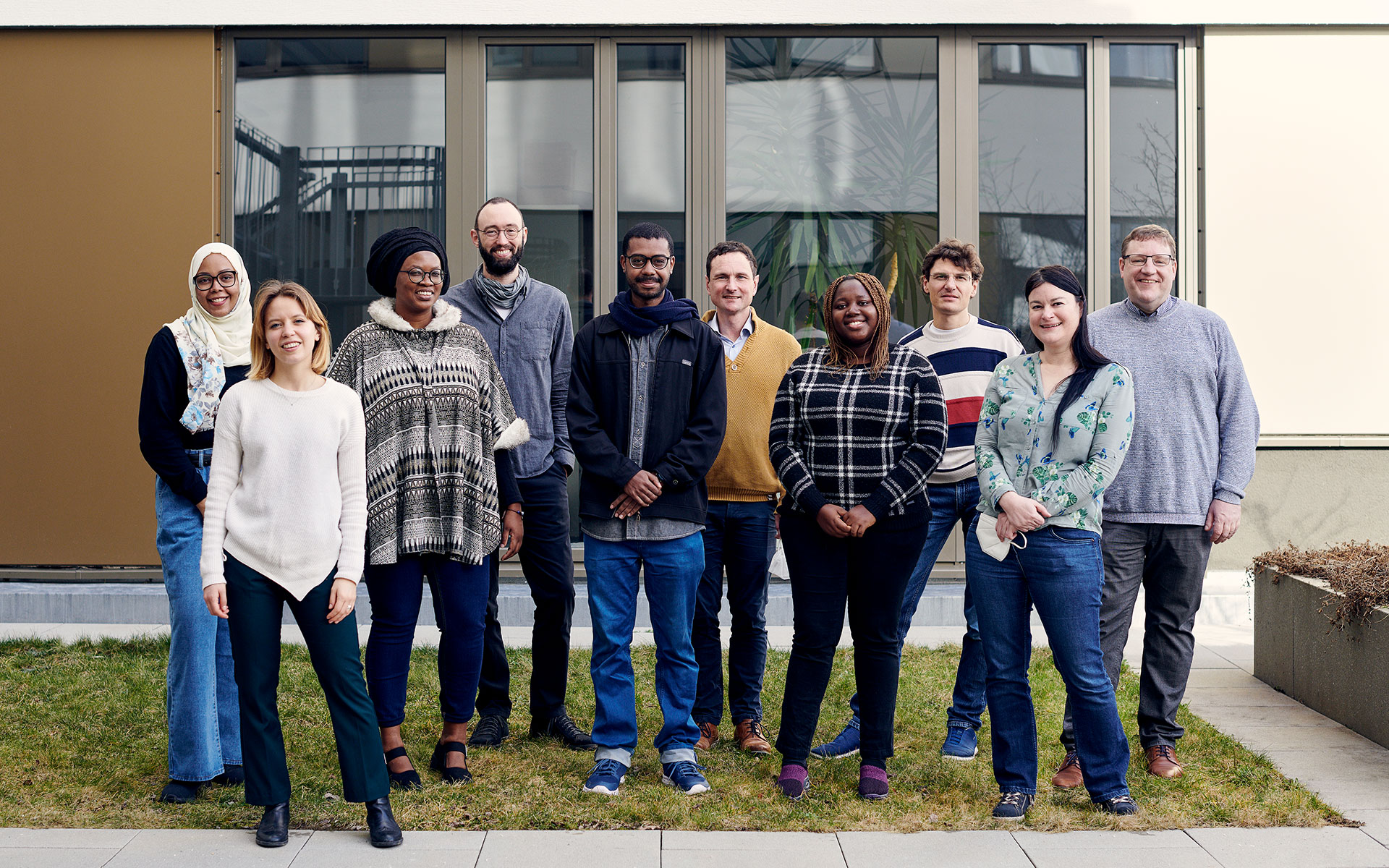
Connecting AIMS and the Cluster is one of the goals of the program: The fellows with their supervisors and coordinators from the Cluster of Excellence “Machine Learning”. © ELIA SCHMID/UNIVERSITY OF TÜBINGEN
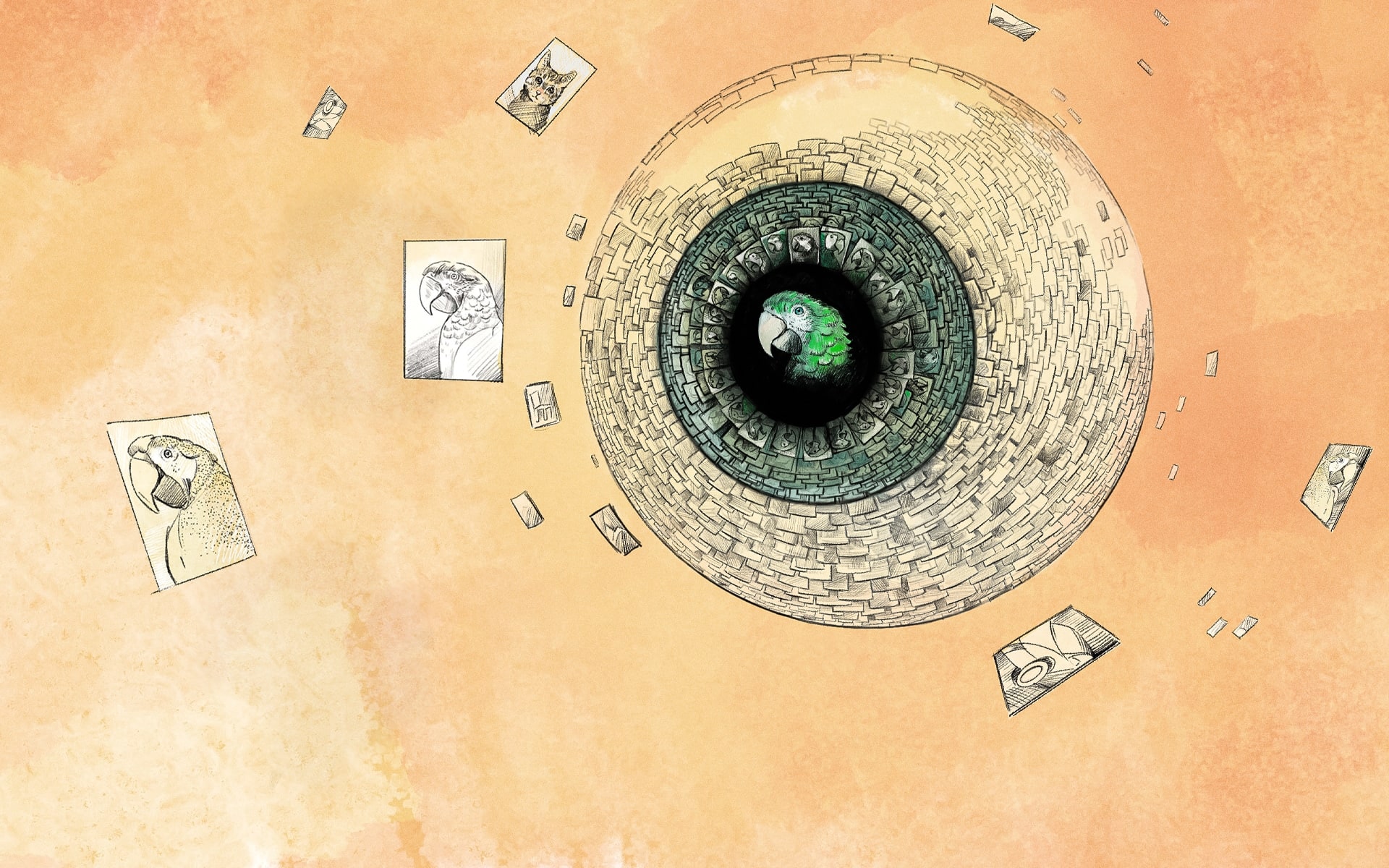
Do machines see like humans? They are getting closer
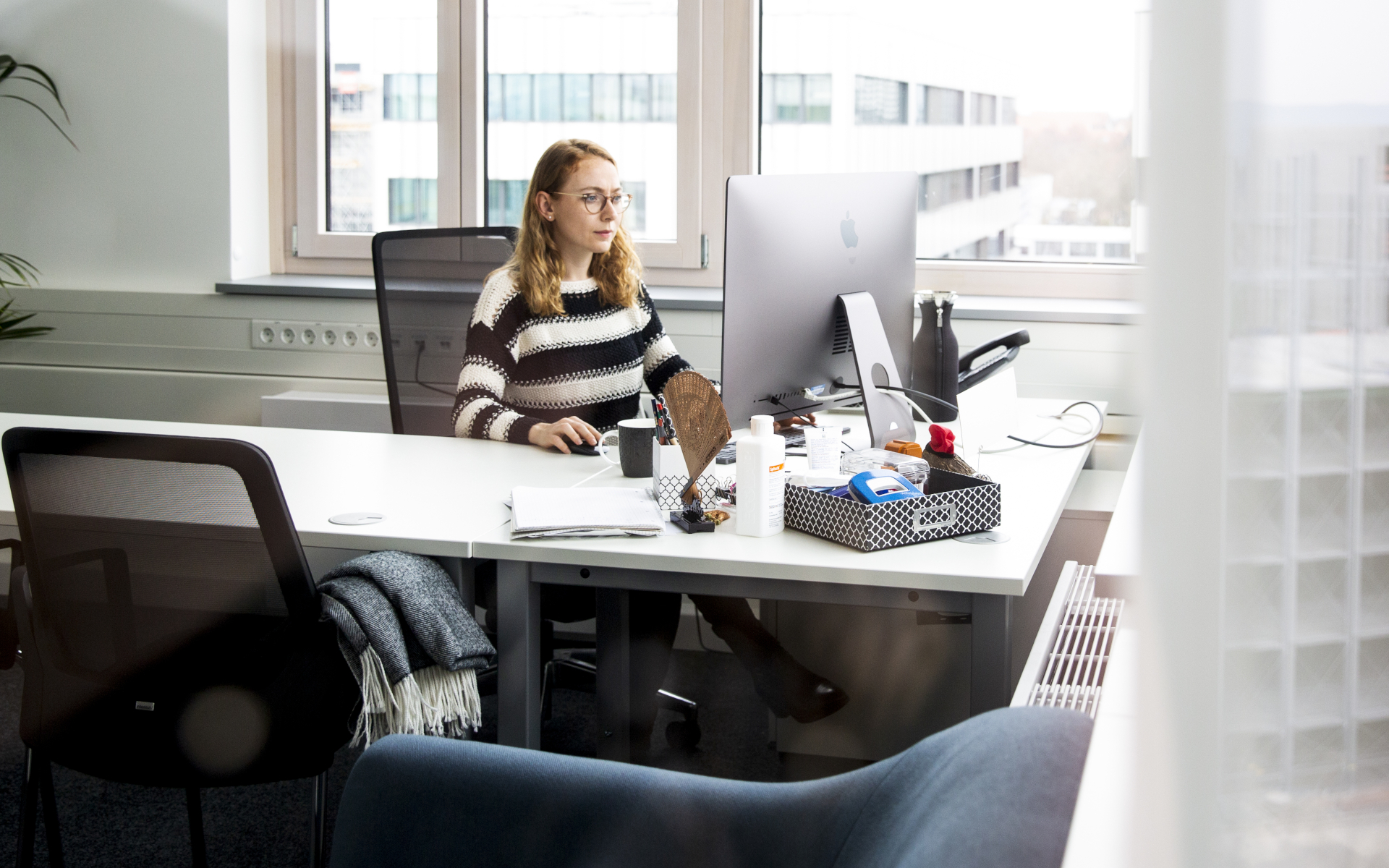
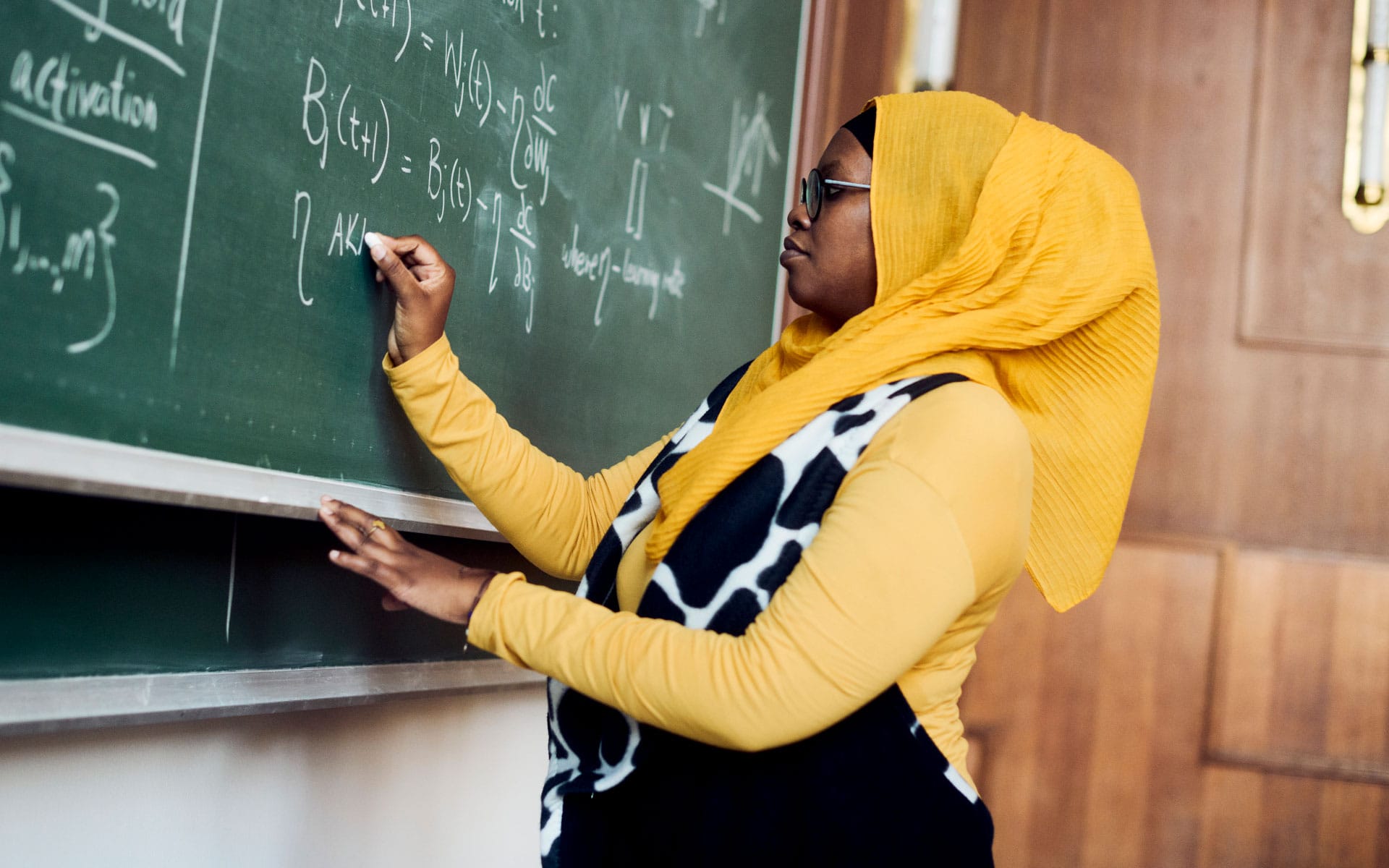
Comments